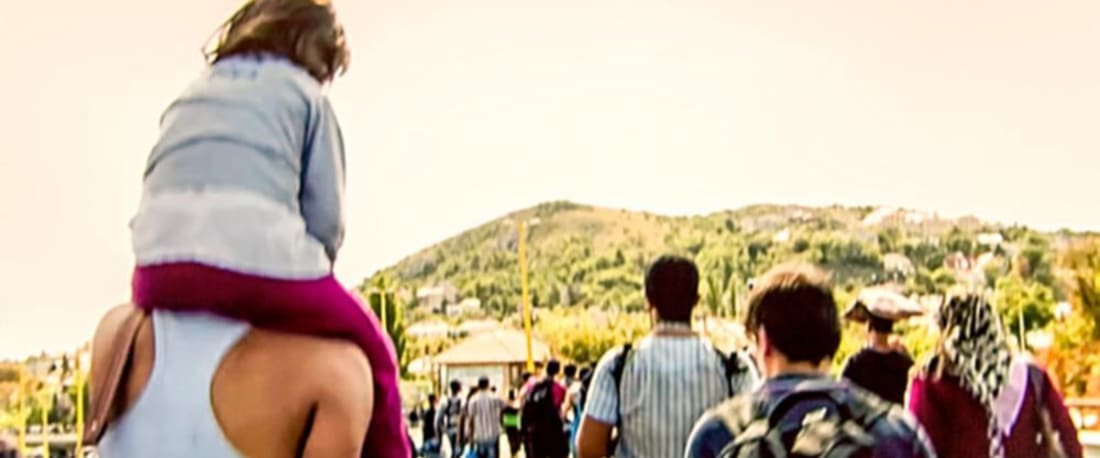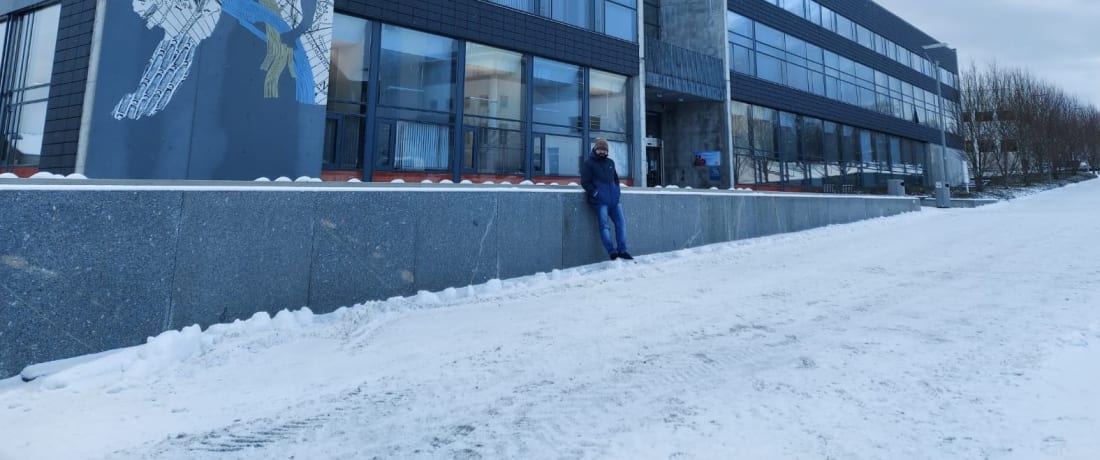Study Master in Norway 2024
Study in Norway
Higher Education in Norway
Norwegian higher education conforms to the Bologna Process of European higher education, including bachelor’s, master’s, and Ph.D. degrees.
Why Study in Norway?
Norway offers the highest standard of living in the world along with world-class institutions of higher education that offer advanced research and computer facilities. More than 200 master’s degree programs are taught in English in a wide variety of subject areas. International students will find a very welcoming environment in Norway –the country is eager to increase the more than 14,000 international students that currently study there each year.
Universities in Norway
Norway has about 70 institutes of higher education, both public and private. Master’s degrees are awarded by universities, specialized university institutions, some university colleges, and some private institutions. Despite its small size, Norway has two schools among the top 400 as rated by the 2012-2013 Times Higher Education World University Rankings.
Academic Year
The academic year is based on semesters and normally runs from mid-August to mid-June.
Post-Graduate Opportunities
International students studying in Norway on a student residence are normally expected to return to their home country after completing their studies. However, students eligible to work in Norway will find opportunities in the major industries, including petroleum, copper, natural gas, fishing, timber and hydropower.
Visa Requirements
Students from Nordic countries (Iceland, Denmark, Sweden and Finland) do not need a student residence permit or visa.
Visas are generally good for only 90 days, so students from all other countries planning to stay longer must have a student residence permit. The rules for permits depend on the student’s home country of residence.
Students from EU/EEA/EFTA countries do not have to pay a processing fee but must submit an application for a student residence permit to a Norwegian Foreign Mission in their home country or a police station in Norway where their school is located. The application must be submitted in person.
Students from all other countries should apply for a student residence permit to the Norwegian Foreign Mission within their home country. Applications must be submitted in person.
All students must present proof of health insurance and proof of living expenses (NOK 95,000 per year) along with their residence and/or visa applications. Non-EU/EEA/EFTA students must also demonstrate that they have obtained housing and that they have sufficient funds for tuition if they are required to pay tuition.
Health Insurance
Students from Nordic countries are members of the Norwegian National Insurance Scheme and are entitled to health services under the Norwegian National Insurance Act; these students do not have to verify their eligibility with a European Health Insurance Card.
Students from the EEA or Switzerland who are covered in their home countries are entitled to emergency treatment and essential health services covered under their European Health Insurance Card. Students without this card should obtain private insurance to cover other medical expenses.
Other students are automatically insured under the Norwegian Health Insurance Scheme if their studies will last for more than one year. Students planning to study for less than one year must apply for membership in the scheme. Students without membership in the scheme should obtain health insurance from their home country.
In addition, some institutions provide health care, so students should be sure to check these options.
Change currency
Basic monthly living cost
Rent in a shared flat
546Share of utilities
64Internet subscription
48Local transportation
68
Sample lifestyle cost
Fast food combo
11Cinema ticket
13Pint of local beer
9
About Norway
Norway is situated in the western part of the Scandinavian peninsula. It extends about 1,100 mi (1,770 km) from the North Sea along the Norwegian Sea to more than 300 mi (483 km) above the Arctic Circle, the farthest north of any European country. Norway has extensive reserves of petroleum, natural gas, minerals, lumber, seafood, freshwater, and hydropower.
From 2001 to 2006, and then again from 2009 to 2011, Norway had the highest human development index ranking in the world.
Norway is a Scandinavian country located in Northern Europe sharing borders with Sweden, Finland, and Russia. The country is famous for its rugged terrain, long coastline, and extensive fjords. Students who love outdoor activities will find much to like in Norway, with something for every season, including the Aurora Borealis “Northern Lights” and cross-country skiing in the winter to white water rafting and climbing in the summer.
The unit of currency is the Norwegian kroner, abbreviated NOK and most people speak Norwegian, although English is also widely spoken. Norway is not part of the European Union (EU) put through various agreements is fully integrated with the larger European community. Edward Grieg, one of the world’s most famous classical composers, is from Norway, as well as Edward Munch, painter of the famous modern expressionist painting “The Scream.”
Climate
Due to Norway’s long north-to-south length and rugged terrain, the climate varies significantly throughout the country. In general, the country experiences four seasons. High temperatures in the summer range from about 22 degrees C to occasional temperatures above 30 degrees C. Winter temperatures can be as low as -40 degrees C in some locations, with -15 degrees C being more typical.
Culture
Despite its small population, Norway has many cultural activities available. In particular, Norwegian music includes classical music, jazz, pop, rock, and electronic music, and many music festivals take place in the country throughout the year.
Norwegian food has become international, although traditional Norwegian options are still available. Traditional foods include potato dumplings and lutefisk, which is fish soaked in a caustic substance that turns it into jelly. Norwegians also consume more coffee per capita than any other country in the world (much to the surprise of Seattle residents in the US).
Cost of Living
The cost of living in Norway is quite high. Students should plan to spend at least NOK 8,900 (€1,100) per month for subsistence. Students are allowed to work up to 20 hours per week to help defray the costs of studying. Students who want to work must obtain a work permit; however, this process is very simple once a student is studying at a Norwegian school.
Visa Requirements
What type of Visa do you need?
Visa name
Student Visa (Student Residence Permit)
Price and currency
USD 650
The Norwegian student visa processing fee is around US$650. The fee may be subject to change.
Who can apply for the visa?
If you come from one of the Nordic countries (Sweden, Finland, Denmark, Iceland) you will not have to apply for a residence permit. However, if you plan to study in Norway for more than six months, you must report to a tax office in Norway for an ID check and to report your move to Norway.
If you come from countries within the EU/EEA/EFTA area you can study in Norway for up to 90 days without applying for a student residence permit. However, you will need to apply for a student residence permit for stays of over 90 days, already in Norway.
If you come from outside the EU/EEA/EFTA area you have to apply for a student residence permit before coming to Norway.
Where can you make the application?
Norwegian Embassy or Consulate
After you’ve received your letter of admission you should contact your nearest Norwegian Embassy or Consulate for information on the study permit application procedure, and apply from your country of origin.
While some candidates can apply online from within Norway or through a Norwegian embassy, most students will need to hand in a paper application form to their closest Norwegian embassy or consulate.
How to make the application?
When you hand in your student residence permit application form, you must also provide your passport, along with other necessary documentation. You’ll need to submit:
- Evidence of admittance to an approved full-time education program
- A completed application form
- Receipt of having paid the application fee
- Two recent passport-sized photos with a white background
- Evidence of sufficient financial funds for the entire period of study, including funds to support any accompanying family, which should be in a Norwegian bank account (it can be difficult to open an account in a Norwegian bank without a Norwegian personal number, so you can usually deposit the required amount into an account established by your educational institution). You need to prove you have access to NOK 116,369 for each academic year (10 months), which is approximately US$14,350. If the stay is financed through scholarships, student loans, or other public funding from the home country, valid documentation must accompany the application.
- Evidence that you have somewhere to live (such as a house, apartment, bedsit, or room in a hall of residence)
- Evidence that you will leave Norway when your residence permit expires (usually in the form of a return ticket)
- Completed and signed UDI (Norwegian Directorate of Immigration) document checklist, which you should print off and hand in along with your other documents
When should you apply?
Processing times for student residence permits will vary and may take two months or so, therefore it is advisable to apply as soon as you are able.
The length of your student visa depends on the length of your study program. Your student residence permit can be renewed through the online Norway Application Portal at least one month before the expiry date. To renew your work permit, you must contact the UDI separately, and show proof that you have made satisfactory progress studying in Norway.
Processing time
2 Months
Work opportunities
When you receive a student residence permit for Norway, you are also granted permission to work part-time for up to 20 hours each week while studying and full-time during university holidays.
You can also apply for a full-time work permit for a limited period if you can prove that the work is relevant to your education, or that it’s necessary for admission to further your education within the same program option – You should have a concrete offer of employment in this regard.
Hours per week
20
Why do you need this type of visa?
Your visa application may be rejected if you are not able to show proof of the required funds, or if you provide incorrect or incomplete documents.
Institutions
- Molde University College - Specialized University in Logistics
- Kristiania University
- Nord University
- University of Agder
- European Master in Migration and Intercultural Relations
- NTNU Norwegian University of Science and Technology
- UiT The Arctic University of Norway
- Nord University - Business School
- Inland Norway University of Applied Sciences
- Norwegian University of Life Sciences (NMBU)


